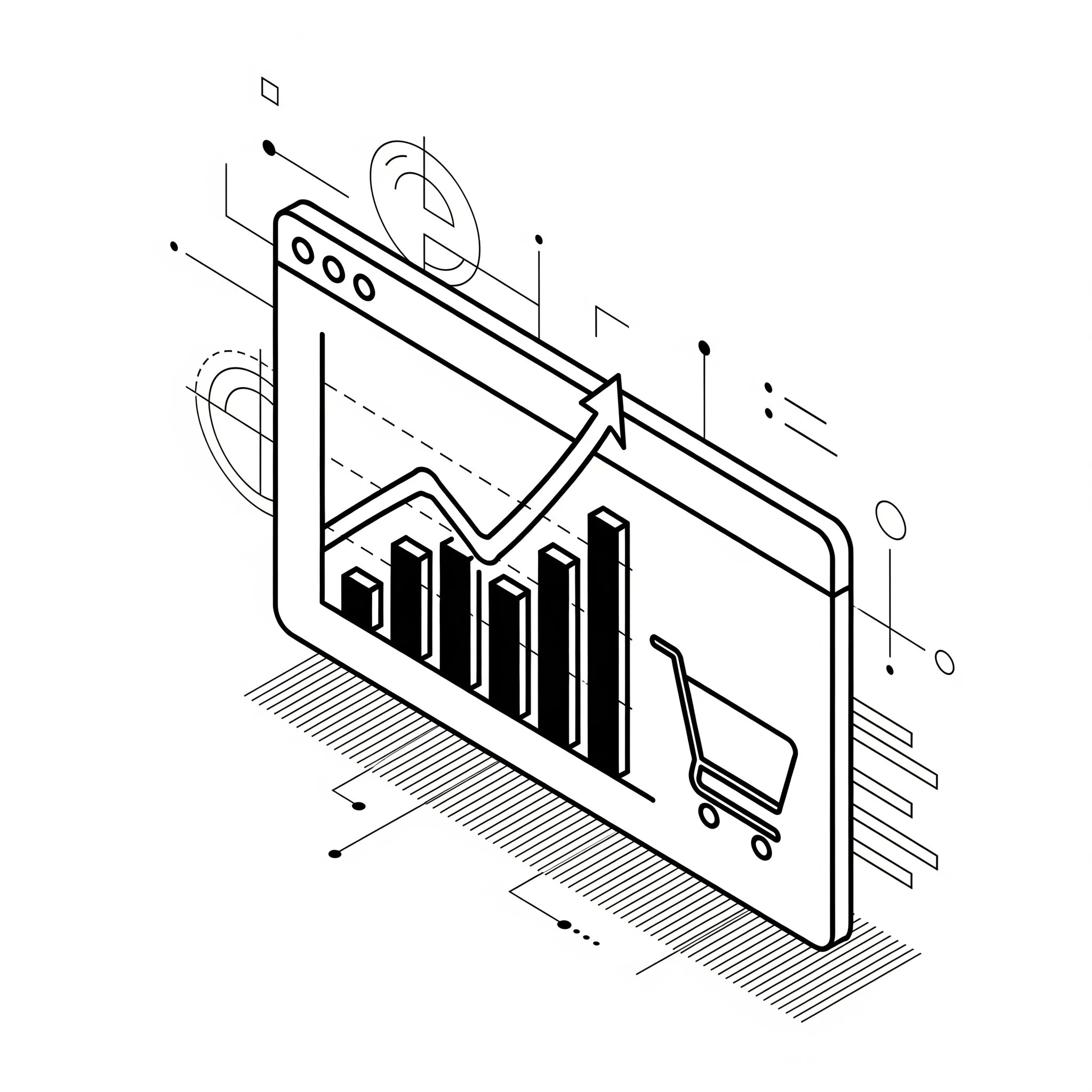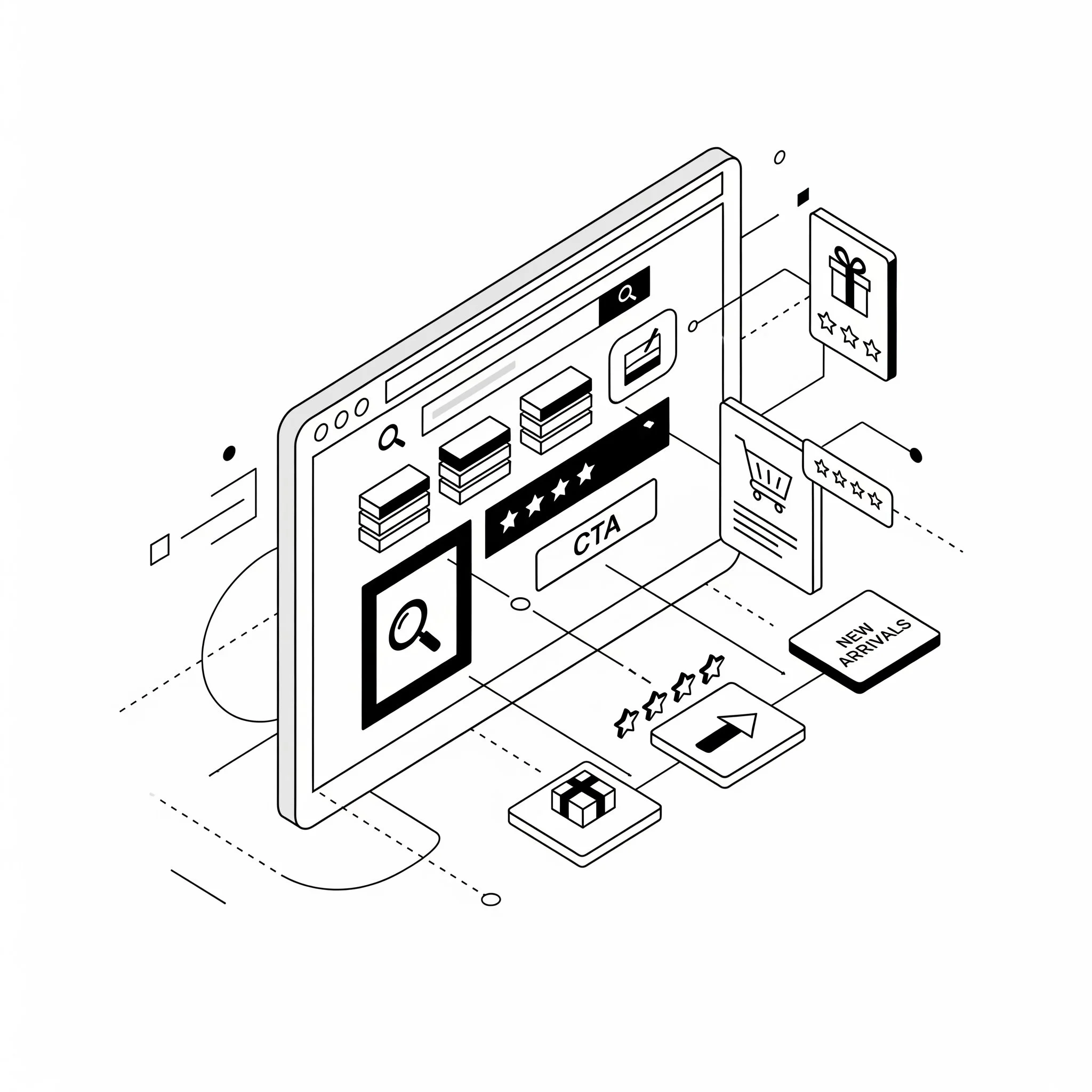How to increase online sales on a B2B e-commerce platform?
In an era of digital transformation, companies are increasingly investing in B2B e-commerce platforms that optimize business processes and automate the handling of bulk orders. Choosing the right system affects not only operational efficiency, but also customer satisfaction and competitive advantage. Among other things, we suggest which features and technologies are driving B2B online sales, how to increase traffic and conversions, and how to choose the platform that will best accelerate the growth of your business.
Table of Contents:
What is a B2B e-commerce platform and how does it support online sales growth?
What features and technologies to apply to B2B e-commerce sales?
What should you keep in mind when choosing a B2B e-commerce platform?
How to increase traffic and conversions on a B2B e-commerce platform?
Bottom line - which B2B e-commerce platform will best accelerate your sales?
What is a B2B e-commerce platform and how does it support online sales growth?
The B2B e-commerce platform is an advanced web-based system that automates the wholesale process and business customer service. In practice, it plays the role of a "digital merchant", implementing:
support of individual price lists per customer - personalization of the offer according to the pricing policy,
automating purchasing processes - from submitting a request for proposal to generating invoices,
Inventory management - two-way flow of data from ERP,
Quick orders - basket prepared for bulk transactions.
Why is a B2B platform different from standard B2C e-commerce? Primarily because of the volume of goods, complex business processes and the need for advanced integration with ERP or CRM systems. This allows a company to offer personalized offers, streamline logistics and significantly increase online sales.
What features and technologies to apply to B2B e-commerce sales?
The effectiveness of wholesale largely depends on the availability of the following modules:
Integration with ERP system, i.e. synchronization of inventory and flow of information about contractors and order history.
Quotation and wholesale price module - generating quotations based on individual sales models and the ability to approve orders by dedicated people in the company.
Headless frontend, that is, separating the frontend (Next.js) from the backend (Magento 2) as in the case of Selliny. It provides ro flexible development of the online store, no Vendor Lock and allows any integration with external services.
Automation of sales processes - a workflow that allows for automatic sending of inquiries, acceptance of orders and invoicing. Automate repetitive tasks, reducing operating costs.
Personalization and segmentation, i.e. defining customer groups and assigning them special offers or discounts. Handling seasonal promotions and loyalty programs.
With these features, the platform allows the rapid growth of the goods catalog, handling increasing order volumes and flexible adaptation to the needs of the enterprise.
What should you keep in mind when choosing a B2B e-commerce platform?
The trust of counterparties requires ensuring the highest standards of data and transaction protection:
HTTPS protocol and SSL certificates - provide security for transmitted information,
roles and permissions - multi-level access authorization, two-step verification protect against third-party access,
Compliance with RODO - processing of customer data in accordance with legal requirements,
Online payment integration - provide fast and secure transactions, automatic invoicing.
An important part of implementing B2B e-commerce is also an efficient integration with the ERP system, which enables the flow of information on inventory, pricing and product availability.
How to increase traffic and conversions on a B2B e-commerce platform?
Increasing traffic and conversions on a B2B e-commerce platform is a process that requires much more than simply replicating strategies familiar from the B2C market. It's a game with higher stakes, where relationships are more durable and customer value (CLV) is incomparably higher. Here's a set of proven steps that will help you not only attract valuable business customers, but also build a long-term, profitable relationship with them.
Strategic prospecting and precision outreach
Unlike broad B2C campaigns, in the B2B world we know very well who our potential customer is. It is not an anonymous consumer, but a specific company, with a specific industry, scale of operations and needs. The key is active, outbound outreach to these precisely defined groups.
Identification and segmentation: identify your ideal customer profile (ICP). Instead of thinking of "companies," think of "electrical engineering distributors with a turnover of 50-100 million PLN who have not yet automated the quoting process."
Multi-channel outreach: use data to drive action on different fronts:
Mailing campaigns: build or acquire contact bases for purchasing managers, sales directors or owners and target them with personalized communications.
Precise social media campaigns: use LinkedIn Sales Navigator or advanced targeting on Facebook to reach people in specific positions in selected companies with your message.
Analog marketing: hold webinars, business breakfasts or closed product training sessions. This is a great way to establish a direct relationship and bring potential customers into your ecosystem.
A value proposition, not just a product
B2B customers aren't just looking for a commodity. They're looking for a partner that solves their problems and makes it easy for them to do business. Your job is to communicate this value directly. Instead of saying "we have 20 years of experience," show what that experience realistically brings to the customer.
Unique functionality: give the customer a reason to create an account. This could be access to an advanced configurator that allows you to instantly create offers for your end customers.
Personalized terms: communicate clearly the benefits of cooperation - dedicated discounts, access to a unique assortment, special logistics terms or trade credit.
The goal is the lead: every prospecting activity should have one goal - to acquire a contact (email, phone) in exchange for a specific promised value. This is the first step to building a long relationship.
Technology and purchase path optimization
User experience (UX) in B2B is just as important as in B2C, although it focuses on different aspects. Here, it's all about efficiency, speed, and flawlessness.
Technology in the service of efficiency: make sure your platform is fast and stable. Technologies such as Headless e-commerce allow the interface to work instantly even with huge product catalogs.
Simplified purchasing process: optimize the path for bulk orders. Implement features such as multi-line shopping carts, standing order templates or the option to import an order from a CSV file.
Live support: provide easy access to technical and sales support via live chat or a dedicated hotline. A quick response to a technical question can be critical.
Leveraging the ecosystem and building partnerships
Your e-commerce doesn't operate in a vacuum. Leverage relationships with business partners to strengthen your marketing efforts.
Cooperation with manufacturers: if you are a distributor, negotiate joint marketing budgets with manufacturers. Your platform, which generates valuable traffic, is an excellent media space for them to promote their products.
Affiliate programs: reward your existing customers for recommending your platform. A satisfied business partner is the best brand ambassador.
Remember that the key to success in B2B e-commerce is to consistently deliver value and build trust. Keep your acquired contacts in the communication loop by regularly serving them valuable content - guides, industry reports, news releases. That way, when the moment of purchase decision comes, your company will be the first and natural choice.
Bottom line - which B2B e-commerce platform will best accelerate your sales?
When choosing a B2B e-commerce platform, the key is to match the specifics of the business:
small businesses will be better served by SaaS solutions with quick deployment and low initial cost;
Medium and large companies with an extensive catalog can bet on Sellina, a headless technology based on Magento 2, with key functionalities for B2B sales built in, providing flexibility and scalability.
If you want to increase the efficiency and scale of your online sales, contact our team of experts and schedule a free consultation!



